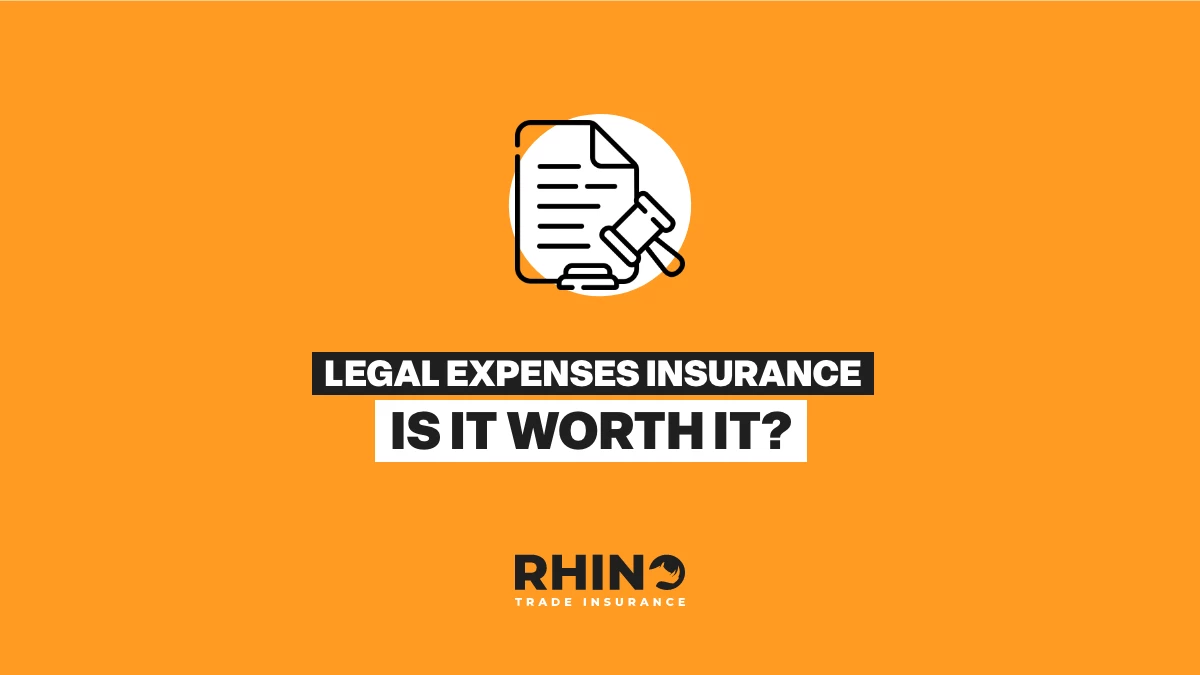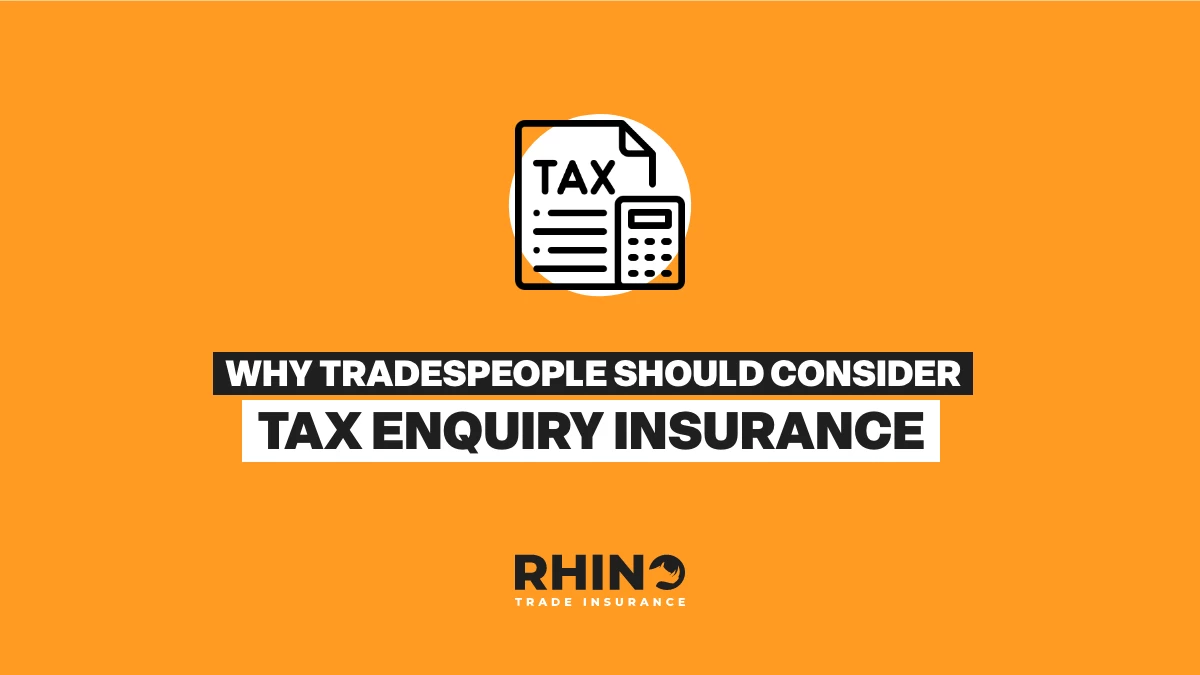
Legal Expenses Insurance – Is it Worth It?
Legal Expenses Insurance for tradespeople explained—what it covers, when you might need it, and how it protects against costly legal fees.
If you provide professional expertise as part of your job, you’ll be used to hearing how happy your clients are with the guidance you’ve provided.
However, you’ll also know that you can’t please everyone. No matter how much experience you’ve got and how much care you take in your professional services, there will always be cases where the client just isn’t happy.
In this blog, we’ll explore what might lead to a situation like this, and how Professional Indemnity Insurance can help you.
Professional Indemnity Insurance (also known as indemnity cover, professional liability insurance or PI insurance) is a type of cover which protects self-employed people – including contractors, freelancers and business owners – from the costs of legal claims that arise from a client being unhappy with their services.
This essential indemnity cover for professionals will cover the costs if you get accused of professional negligence or a customer alleges you’ve given them poor business advice. These costs can include compensation you owe, plus legal fees.
It’s not a legal requirement in the UK, but it’s highly recommended to have in place to protect you against the few unhappy customers that the average tradesperson must deal with over the course of their career.
Example 1: a self-employed builder makes an error on the plans for an extension, leading to it needing to be redesigned after work has commenced.
Example 2: a software developer gets accused of intellectual property theft after developing an app for a client.
Example 3: a CCTV installer accidentally installs a camera incorrectly in a shop. The shop was burgled and there was no record of the incident.
Example 4: a plumber accidentally forwards an email including sensitive customer information to another customer, resulting in distress from the invasion of privacy for the first customer.
Example 5: an electrician incorrectly installs a lighting system in a school after conducting an assessment of the building. The lighting system did not perform as expected, disrupting lessons, so the school brought a claim against the electrician.
As a rule of thumb, you need Professional Indemnity for tradesmen and women if you provide any of the following:
All jobs contain an element of risk, but this is amplified if you’re giving out advice and expertise, or producing designs or plans for your clients. Working in the trades adds yet another layer of hazard because trade work can be so dangerous. In all, there’s a lot that can go wrong when you’re designing a conservatory, installing a boiler, advising a customer on where to put their bespoke lighting system, or leading on a project management timeline.
These are just a few examples of scenarios that Professional Indemnity Insurance would cover which could give rise to a legal claim, but the true scope for potential negligence claims against tradespeople is almost endless.
Legal claims can cost a self-employed tradesperson a massive amount of money, and that’s even if the claim doesn’t succeed and no compensation costs are due. You’ll still need to pick up the tab for your legal fees, which you don’t need us to tell you do not come cheap.
Think about your reputation for a moment. Even if your small trade business can weather the storm financially, your business will leave a sour taste from the customer’s point of view if they discover you’re uninsured. Given the importance of word-of-mouth recommendations and online reviews for tradespeople these days, it’s a bad move to chance it by going without Professional Indemnity Insurance.
Look at it from your customer’s point of view, too. They are putting their faith in your experience and knowledge, and they deserve to have the assurance that their costs will be covered should anything go wrong their end as a result of your advice.
Professional Indemnity Insurance coverage limits are generally in line with the level of risk involved in your work, and the likelihood of someone suing you for negligence. At Rhino, we offer cover limits from £200k to £2million. To determine which amount you need to adequately cover your business, you’d need a chat with the trade insurance experts at Rhino HQ. Alternately, you can head to our online quote generator to get an idea of the limits you’d need, and how much your premiums will be.
When you take out Professional Indemnity cover, you can relax knowing that your insurer will pick up the tab should you become the subject of a legal claim for professional negligence. These costs are usually made up of the following:
As previously mentioned, you should consider the risks that you face in your work when it comes to choosing the level of Professional Indemnity cover that you’ll require. Unlike Public Liability Insurance, when you’ll consider physical dangers and risks to others, in the case of PL insurance you should think about the advice you give and its potential to go wrong. Designing unique plans and blueprints for a client always comes with an element of risk, as mistakes can be made which can end up jeopardising an entire project. Similarly, handling sensitive customer data, including financial information, addresses and floor plans means you’re vulnerable to data breaches and losses.
You should only sign up for premiums your business can afford. Having said that, it’s always advisable to be insured for every eventuality and skimping on insurance is known to be a false economy. If you’re concerned about the cost of repayments, the best thing to do is talk to the team at Rhino to understand what your best option is.
Your business will change in size and shape over the years. Hopefully, you’ll experience growth in company size and turnover, as well as expand your scope and even take on new employees. Welcome as these changes may be, you need to make sure your insurance coverage reflects them or you’ll find yourself exposed. You should let your insurer know as soon as anything changes to avoid invalidating your policy.
If you need any further advice on navigating Professional Indemnity insurance, give Rhino a call on 0116 350 1551. Or, you can check out the online quote generator we mentioned earlier to give yourself an idea of the level of Professional Indemnity cover you’ll need to protect your business.
Legal Expenses Insurance for tradespeople explained—what it covers, when you might need it, and how it protects against costly legal fees.
Worried about a tax investigation? With HMRC cracking down in 2025, Tax Enquiry Insurance from Rhino gives UK tradespeople expert protection and peace of mind.
Rhino Trade Insurance CEO Troy Stevens joins industry leaders at the House of Commons to discuss the rising issue of tool theft—highlighting its impact on UK tradespeople and the importance of awareness and protection.
Tell us your trade and get a tailored insurance quote for your business in seconds
Our team of experts are available to talk to Mon-Fri 08.30-17.30 and Sat 10.00-14.00

